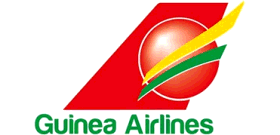 Air Guinée's Revival: Gewan Deal Promises New Routes Amidst Rival Claims
Air Guinée's Revival: Gewan Deal Promises New Routes Amidst Rival Claims
The West African aviation landscape is set for a significant shake-up as Guinea moves to resurrect its national airline, Air Guinée, more than two decades after its liquidation. A landmark memorandum of understanding has been signed between the Guinean government and Gewan Holding, an Abu Dhabi-based investment conglomerate, heralding a new chapter for the nation’s air transport sector. However, this promising development is clouded by competing claims from another firm, casting uncertainty over a project crucial for regional connectivity.
This new venture marks the third attempt to revive the carrier, following two previous efforts that failed to get off the ground. A 2017 project named Guinea Airlines never became operational, and a subsequent initiative, Guinée Airlines, was officially abandoned after 2021. Both were casualties of the persistent financial, structural, and regulatory challenges that have long plagued the region's aviation industry. Now, with a powerful international partner, hopes are high that this time will be different, though the path forward is far from clear.
The original Air Guinée, founded in 1960 with Soviet support, was once a symbol of national pride. It served domestic and regional routes before financial turmoil led to its privatisation in 1992 and eventual liquidation in 2002 under pressure from international financial institutions. The airline’s chronic losses and management issues made it a cautionary tale, one that the new partnership aims to rewrite.
A Tale of Two Mandates
The new partner, Gewan Holding, is a diversified investment group established in 2018 with a portfolio spanning hospitality, media, and real estate. Its foray into aviation is spearheaded by its subsidiary, Gewan Airways, a Kyrgyzstan-based cargo carrier that secured its Air Operator's Certificate in 2024. While its expertise lies primarily in cargo and logistics, Gewan’s involvement signals a serious financial commitment and aligns with its strategy of expanding its footprint in Africa.
However, a significant complication has emerged. Just as the ink was drying on the Gewan Holding agreement, a U.S.-based aviation consultancy, FlyWestaf LLC, publicly asserted that it had already been mandated to launch the new airline under the name FlyGuinea. In early July 2025, FlyWestaf announced it had successfully completed the project management phase, including strategic and financial due diligence, with an operational launch planned for early 2026. These claims, widely reported in industry circles, suggest a profound disconnect and potential conflict between different factions involved in the airline's revival.
Reshaping West Africa’s Skies
This complex situation unfolds against a backdrop of dynamic change in West African aviation. The region has historically lagged behind others on the continent, with Central and Western Africa being the only region to see a decline in seat capacity between 2024 and 2025. Nigeria, its largest market, experienced a significant 17.3% drop, hampered by infrastructure deficits and economic pressures. Limited international connectivity has long forced travelers into inconvenient, lengthy layovers.
Yet, a wave of transformation is underway. Several nations, including Mali and Burkina Faso, are also reviving their national carriers, often through public-private partnerships. These initiatives are supported by ambitious infrastructure upgrades. Guinea, for instance, is modernizing Conakry Gbessia International Airport with the goal of handling 15 million passengers annually by 2031. Such projects are vital for improving regional connectivity and reducing reliance on foreign carriers that currently dominate the market.
Opportunities and Obstacles on the Horizon
For Africa’s travel industry, a revitalized Air Guinée presents immense opportunities. A reliable national carrier could stimulate tourism, create thousands of jobs, and support related sectors like hospitality and logistics. By providing more direct and efficient travel options, it could unlock new business and leisure markets that are currently underserved. The success of airlines like Asky, Air Côte d’Ivoire, and Air Sénégal demonstrates the potential for well-managed regional carriers to thrive.
Nevertheless, the historical challenges that grounded its predecessors remain. The question of financial sustainability is paramount. Many state-backed African airlines have struggled to operate without government subsidies, and the fragmented regional market can make profitability elusive. The success of this new Air Guinée will depend not only on resolving the conflicting mandates with FlyWestaf but also on implementing a sound business model that can withstand market pressures and avoid the pitfalls of the past.
The unfolding story of Air Guinée’s rebirth is more than just the launch of an airline; it is a test case for the future of West African aviation. The resolution of the competing claims and the carrier’s ability to establish stable, profitable operations will be watched closely by industry stakeholders across the continent. For now, the promise of new routes and enhanced connectivity is tempered by a complex corporate drama, leaving the industry to wonder which vision for Guinea’s flag carrier will ultimately take flight.
